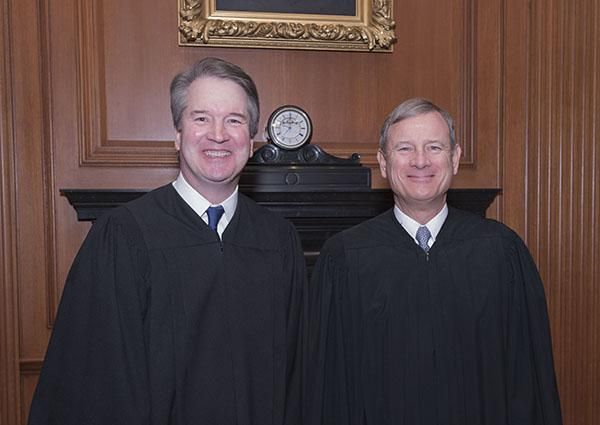Reasonable minds can differ about the most regressive opinions of the Roberts Court. But here are the decisions that should make any court-watcher’s list.
Crawford v. Marion County (2008): Paving the way for other voter suppression techniques, the court upheld an Indiana law requiring all in-person voters to present a photo ID issued either by the state or the federal government.
District of Columbia v. Heller (2008): Declaring for the first time that the Second Amendment protects an individual right to bear arms.
Citizens United v. FEC (2010): Overturning a century of campaign finance law and sparking the growth of super PACs, the court held that corporations, unions and other groups could spend unlimited money on elections.
Shelby County v. Holder(2013): The court gutted the “preclearance provisions” of the Voting Rights Act, which required advance federal approval of changes to election procedures in jurisdictions with a history of racial discrimination.
McCutchen v. FEC (2014): In a follow-up to Citizens United, the court invalidated limits placed on the aggregate amount of money individuals can donate directly to political candidates during any two-year election cycle.
Burwell v. Hobby Lobby Stores (2014): Exempting “closely held” corporations with religious objections from the Affordable Care Act’s provisions requiring employers to provide workers with health care insurance coverage of contraceptives.
Gossip v. Gross (2015): In a disheartening decision for opponents of the death penalty, the court held that the Eighth Amendment does not require that a method of execution be pain-free.
Trump v. Hawaii (2018): Yielding to the Trump administration’s bigotry, the court upheld the former president’s Muslim travel ban as a proper exercise of executive branch authority.
Janus v. AFSCME (2018): Breaking with over 40 years of labor-law precedent, the court held that public-employee unions may not collect “fair-share” fees from non-union members to help pay for the costs of collective bargaining.
Rucho v. Common Cause (2019): Dealing a crippling to democracy, the court held that issues of partisan gerrymandering are outside the jurisdiction of the federal courts.
Our Lady of Guadalupe School v. Morrisey-Berru(2020): Catholic elementary school teachers are “ministers,” and cannot sue for employment discrimination.
Brnovich v. Democratic National Committee (2021) Upholding two Arizona voter-suppression laws that prevent out-of-precinct voting and so-called “ballot harvesting,” the practice of gathering and submitting mail-in ballots by third parties.
Dobbs v. Jackson Women’s Health Organization(2022): Roe v. Wade and Planned Parenthood v. Casey are overruled.
New York State Rifle & Pistol Association Inc. v. Bruen (2022): New York’s permit system for obtaining an unrestricted license to carry a concealed firearm violates the Second and 14th amendments.
Carson v. Makin (2022): The free exercise rights of parents who live in districts without public secondary schools are violated by a state statute that denies them tuition assistance payments to send their children to religious schools.
Kennedy v. Bremerton School District (2022): The free exercise and free speech clauses of the First Amendment permit a high school football coach to kneel in prayer on the field with students after games.
West Virginia v. Environmental Protection Agency (2022): The Clean Air Act does not give the EPA broad authority to limit carbon emissions from power plants.
- Chief Justice John Roberts Tries to Convince the Nation that US Supreme Court Is Still Legitimate ›
- How John Roberts may slow-walk American democracy right off the cliff ›
- 'Isolated' John Roberts has been 'outflanked and marginalized' as the court's reputation hits a low point: columnist ›
